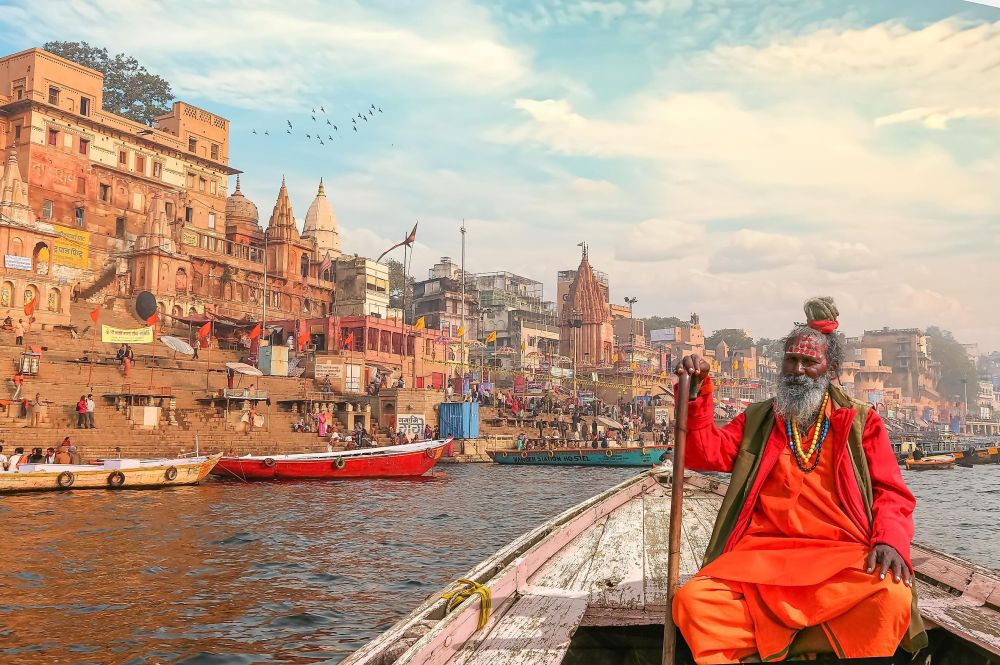

Varanasi, also known as Benares, Banaras, or Kashi, is one of the oldest living cities in the world and a major cultural and religious hub in India. Situated on the banks of the sacred Ganges River in Uttar Pradesh, Varanasi has been a center of pilgrimage for thousands of years.
Varanasi's history of tourism dates back to ancient times. The city is mentioned in holy scriptures such as the Vedas, the Mahabharata, and the Ramayana. It is revered as the abode of Lord Shiva and is considered one of the seven holy cities (Sapta Puri) in Hinduism. Historically, it has attracted pilgrims and scholars from across India and around the world, seeking knowledge, spiritual liberation, and the holy blessings of the Ganges.
Over the centuries, Varanasi has withstood the test of time, witnessing the rise and fall of empires while continuing to preserve its spiritual essence. During the Mughal era, the city saw the construction of numerous temples and ghats, which further enhanced its status as a religious center.
In the British colonial period, Varanasi became more accessible due to the development of railways and infrastructure, seeing an increase in domestic and international visitors. The city's unique blend of spirituality, history, and culture continued to draw tourists in large numbers.
In recent times, Varanasi has evolved into a multifaceted tourist destination. While the religious and spiritual aspects remain at its core, the city now offers a wide range of experiences, from boat rides on the Ganges to exploring centuries-old temples, attending majestic arti ceremonies, and savoring the local cuisine.
The Indian government has also recognized the significance of Varanasi and implemented projects like the Heritage Corridor to preserve and enhance the cultural heritage of the city for future generations. These efforts have contributed to a surge in heritage tourism.
The latest trends in Varanasi's tourism showcase a growing interest in experiential travel. Tourists are seeking immersive cultural experiences, participating in traditional rituals, taking yoga and meditation classes, and attending music and dance performances. There's also a rise in eco-friendly tourism practices as visitors become more environmentally conscious.
Sustainable tourism initiatives are also being encouraged, with local handicrafts, textiles (especially Banarasi silk sarees), and culinary arts receiving more focus, contributing to the local economy and allowing travelers to take a piece of Varanasi's heritage with them.
Varanasi has long been a beacon of spiritual transcendence and cultural magnificence. Today, it continues to enchant visitors from around the world with its time-honored traditions and evolving charm. From religious pilgrimages to cultural explorations, Varanasi remains a testament to India's unparalleled legacy and a key player in its vibrant tourism industry.